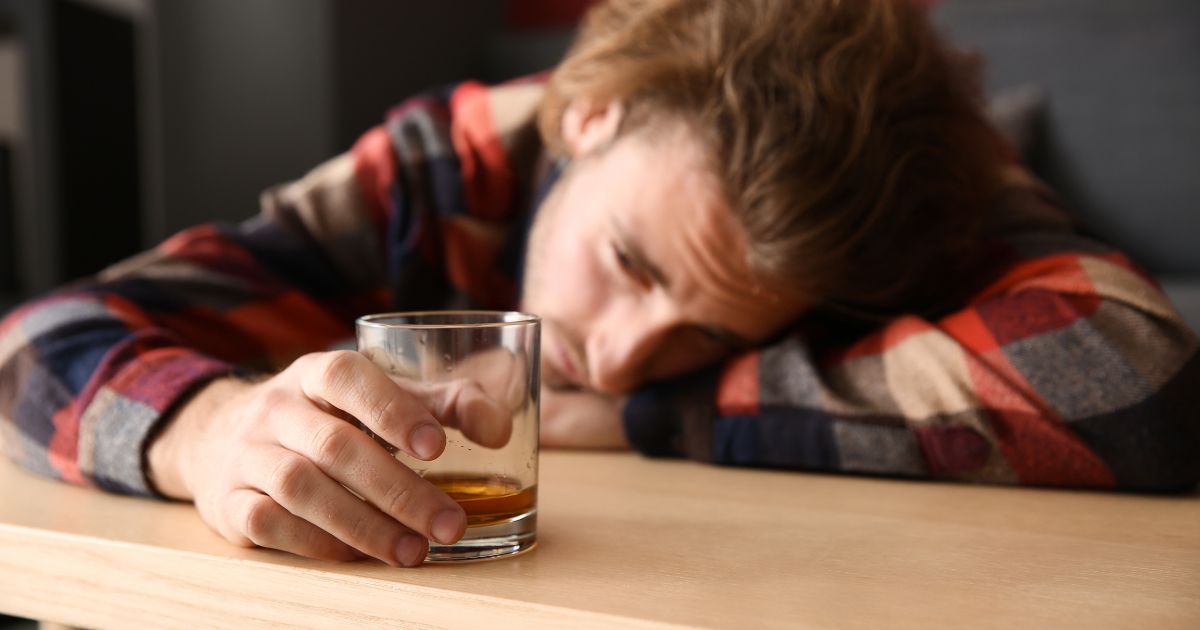People often use them interchangeably, but anxiety attacks and panic attacks are not the same thing.
Anxiety and panic attacks both create feelings of distress, but they’re not the same. Anxiety attacks are generally in response to a perceived threat, whereas panic attacks can be seemingly random. They’re also more intense.
This article discusses panic attacks vs anxiety attacks – how to recognize them, their differences, and what to do about them.
What Is Anxiety?
Anxiety is a complex emotional and physiological response to perceived threat, stress, or uncertainty. Some of this is simply part of everyday life. However, there is a difference between normal anxiety and clinical anxiety.
Clinical anxiety can be triggered by minor things or even seemingly nothing at all. Its intensity is disproportionate to the situation, and it frequently hinders daily activities, responsibilities, and social interactions.
It’s also persistent for much longer than normal anxiety, sometimes lasting months at a time. While normal anxiety may not require professional intervention, clinical anxiety often benefits from treatments and medication.
Clinical anxiety can take the form of anxiety disorders such as:
- Generalized Anxiety Disorder (GAD)
- Panic Disorder
- Social Anxiety Disorder (or Social Phobia)
- Specific Phobias (ex: arachnophobia, agoraphobia, etc.)
- Obsessive-Compulsive Disorder (OCD)
- Post-Traumatic Stress Disorder (PTSD)
Anxiety disorders are the most common mental illness in the U.S. Every year, over 40 million adults in the United States are diagnosed with anxiety. This amounts to 18.1% of the population. Medications are often used to treat anxiety, but these drugs can be dangerous and addictive.
What Is a Panic Attack?
A panic attack is a sudden episode of intense fear or discomfort that peaks within minutes, during which time a variety of physical and emotional symptoms occur. These symptoms can be so severe that people often believe they are having a heart attack, dying, or losing their mind.
Common symptoms of a panic attack can include:
- Heart palpitations, pounding heart, or accelerated heart rate
- Sweating
- Trembling or shaking
- Sensations of shortness of breath or smothering
- Feelings of choking
- Chest pain or discomfort
- Nausea or abdominal distress
- Feeling dizzy, unsteady, light-headed, or faint
- Chills or heat sensations
- Paresthesia (numbness or tingling sensations)
- Derealization (feelings of unreality)
- Fear of losing control or going crazy
- Fear of dying
The exact cause of panic attacks isn’t understood. Some research suggests there could be abnormalities in the brain’s functioning that cause panic attacks. This could be due to genetics — panic disorder is known to run in families.
Certain, significant life changes or stressors, like the death of a loved one, can bring on panic attacks. Personality or temperament can also play a role.
We also can’t ignore the importance of the body – the body and the mind interact in a variety of ways. Things like caffeine consumption, certain medications, and medical conditions can engender panic attacks. Hyperthyroidism is a physical condition that can also bring this on.
Panic attacks can be a part of several disorders, and they’re not limited to just one condition. There’s panic disorder, which is a condition recognized in the DSM-V. Panic attacks can also occur in the context of other anxiety disorders, such as generalized anxiety disorder (GAD), social anxiety disorder, or specific phobias.
Panic Attack vs. Anxiety Attack: Are They Different?
An anxiety attack is a colloquialism for a pronounced feeling of anxiety. It’s not technically recognized as a clinical condition, unlike panic attacks.
Anxiety generally includes symptoms such as apprehension and worry. In other words, there are discernable “triggers” for anxiety and anxiety attacks. On the other hand, panic attacks can occur for little or no discernible reason.
Another difference between panic attacks vs anxiety attacks is the feeling of disassociation. A person experiencing a panic attack may feel as if he is watching himself in the third person. This is different from anxiety attacks, which are more intense and visceral.
Get confidential help from our addiction treatment specialists in Orange County. Call to join our rehab program today!
Call 866-881-1184Tips for Calming Anxiety and Panic Attacks
Managing anxiety and panic attacks can be challenging, but there are several techniques and strategies that people have found helpful over time.
Here are some general suggestions to consider:
- Deep Breathing: This helps to counteract the shallow, rapid breathing that can accompany anxiety and panic. Focus on taking deep breaths in and out, counting to four for each inhalation and exhalation.
- Mindfulness Meditation: By observing your thoughts without judgment, you can distance yourself from the anxiety. Over time, this practice can help you become more aware of your triggers and reactions.
- Visualization: Imagine a peaceful, safe place where you feel relaxed. It can be real or imaginary. The idea is to transport your mind away from the panic to a calmer state.
- Challenge Negative Thoughts: Ask yourself if your fears are truly based on reality and try to replace catastrophic thoughts with more balanced ones.
- Avoid Caffeine and Alcohol: Both can provoke panic attacks in some people.
- Stay Connected: Talk to someone you trust about your panic attacks, whether it’s a friend, family member, or therapist. This can make a big difference.
- Establish a Routine: Keeping a regular routine can provide a feeling of normality.
- Physical Activity: Regular physical activity can help reduce anxiety and panic attacks by releasing endorphins, which are natural stress-relievers.
- Limit Stimulants: Reduce or eliminate the consumption of nicotine and caffeine, which can trigger or worsen anxiety.
- Medication: Some people find relief from anxiety and panic attacks with the help of certain medications. A discussion with a psychiatrist or primary care provider can provide more insight into this option.
- Stay Informed: Understanding what’s happening in your body during a panic attack can sometimes reduce the fear of another occurrence.
- Focus on the Present: Concentrate on the here and now. This can prevent you from getting lost in “what if” scenarios that fuel anxiety.
- Stay Grounded: Remind yourself that the panic attack is a result of overactive anxiety and that it will pass.
Psychotherapies for Anxiety
Therapies such as Cognitive Behavioral Therapy (CBT) have been found particularly effective for treating anxiety disorders and panic attacks. It might be beneficial to consult with a therapist or counselor.
Everyone’s experience with anxiety is unique, and what works for one person might not work for another. A healthcare professional at an anxiety treatment center in California can help tailor strategies and treatments to individual needs.
We are open 24 hours per day, 7 days per week, 365 days per year.
Looking for quality substance abuse treatment that’s also affordable? South Coast accepts most major insurance providers. Get a free insurance benefits check now.
Check Your CoverageAnxiety Treatment at South Coast Behavioral Health
Mental health matters. If you or someone you know is struggling with anxiety or panic attacks and thinks they’re losing control, South Coast Behavioral Health is here to help. We can assist with the diagnosis and treatment of anxiety disorders in Orange County, CA.
Anxiety treatment at South Coast can take place along an entire spectrum of care. Along that entire spectrum are various behavioral therapies, support groups, and the use of medically-assisted treatment (MAT).
These levels of treatment are, in order, as follows:
Residential Treatment in California
After successfully completing medical detox, you’ll receive inpatient treatment in Orange County California. There, you’ll receive medically-assisted treatment and dual diagnosis treatment to deal with any cravings or co-occurring mental health issues you may be battling. We also offer residential treatment facilities in Costa Mesa, Irvine, and Huntington Beach for those who desire gender-specific treatment. There, patients get round-the-clock medical attention and monitoring while living at the institution full-time.
In addition to individual and group counseling and medication management, you’ll also have access to leisure activities and family support services.
Partial Hospitalization in California
Most clients start substance abuse treatment with South Coast in our residential treatment program. After completing that, many desire something that still provides structure and support, but with extra space and time to oneself. For that, we offer Partial Hospitalization in Newport Beach.
A step down from inpatient care but with more structure than conventional outpatient programs, partial hospitalization offers a good balance for those looking to ease back into normal life. Clients can receive care five to seven days a week for a number of hours each day, returning back to their homes in the evening.
This way, they can recover without putting their daily lives completely on hold, receiving intense therapeutic interventions like group and individual therapy, skill development, and medication management as necessary.
Intensive Outpatient Treatment in California
For those leaving inpatient residential treatment or partial hospitalization, intensive outpatient programs (IOP) are yet another gradual step forward on the road to recovery.
With a focus on group therapy, individual counseling, and education, clients undergoing Intensive Outpatient Treatment in Newport Beach can meet three to five days a week. Each session lasts three hours.
This level of care requires the least amount of attendance at a facility.
Start Today
If you or a loved one are struggling with substance addiction but wonder how long addiction counseling takes or have other questions, call us at 866-881-1184.. Our highly qualified staff will be happy to help give you an idea of what to expect from your addiction recovery timeline, help verify your insurance, and assist with any other questions you may have.
REFERENCES:










